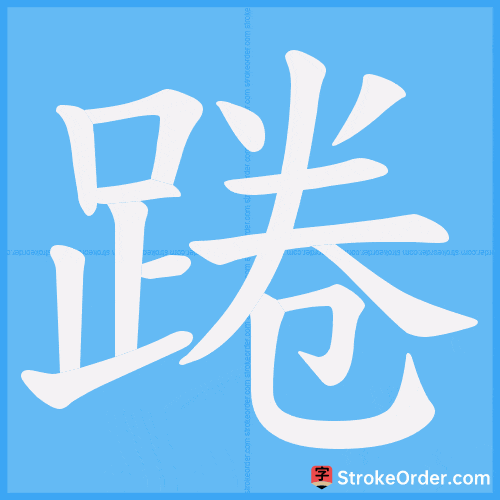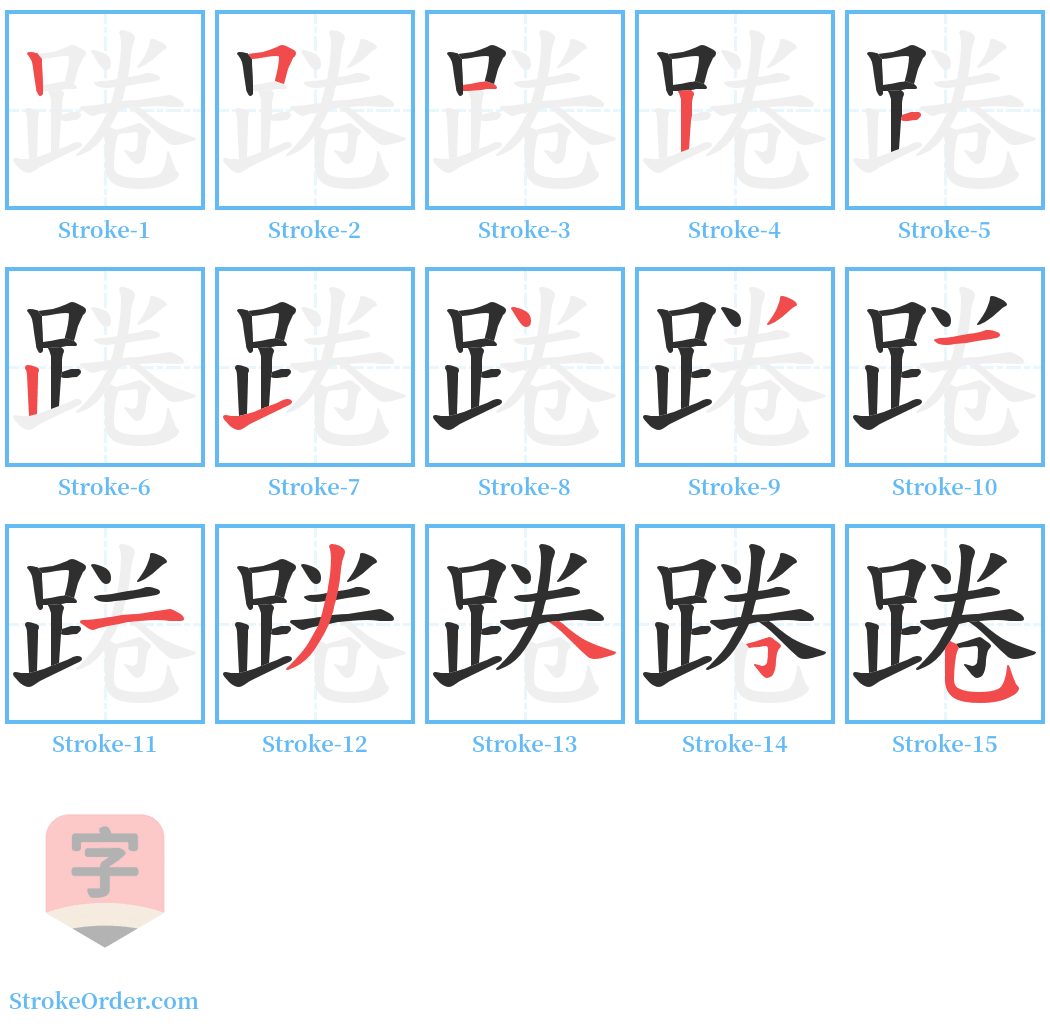踡 Stroke Order
Animated Stroke Order of 踡

Stroke Order Diagrams for 踡

Information of 踡
Pinyin
quán
Radical
足
Strokes
15 strokes
Usage
★★
Definition
踡 [quán]
1. 同“蜷”。 (Same as "蜷".)
【Meaning 1】 屈曲;弯曲 (Curl up; bend)
引例:明·康海《中山狼》:缩的头,踡的胯。 (Ming Dynasty - Kang Hai, "Zhongshan Wolf": The head is retracted, and the hips are curled up.)
例子:又如:踡曲(弯曲;拳曲);踡卧(曲身卧倒);踡缩(蜷曲不伸的样子) (For example: 踡曲 (bending; curling); 踡卧 (curled up lying down); 踡缩 (a curled and unextended appearance).)
【Meaning 2】 束缚;拘泥 (Restrain; rigidly adhering to)
引例:《管子·轻重丁》:是以外内不踡,终身无咎。 (From "Guanzi - Qingzhong Ding": Therefore, if one is not restrained inside and out, one will live without blame for a lifetime.)
【Meaning 3】 另见 juǎn (See also juǎn.)
踡 [juǎn]
【Meaning 1】 〈方〉∶足踢 (Dialect: kick)
引例:洪深《鸡鸣早看天》:你等着大先生跟踡你吧。 (Hong Shen, "The Rooster Crows Early": Just wait for the great teacher to kick you.)
【Meaning 2】 另见 quán (See also quán.)